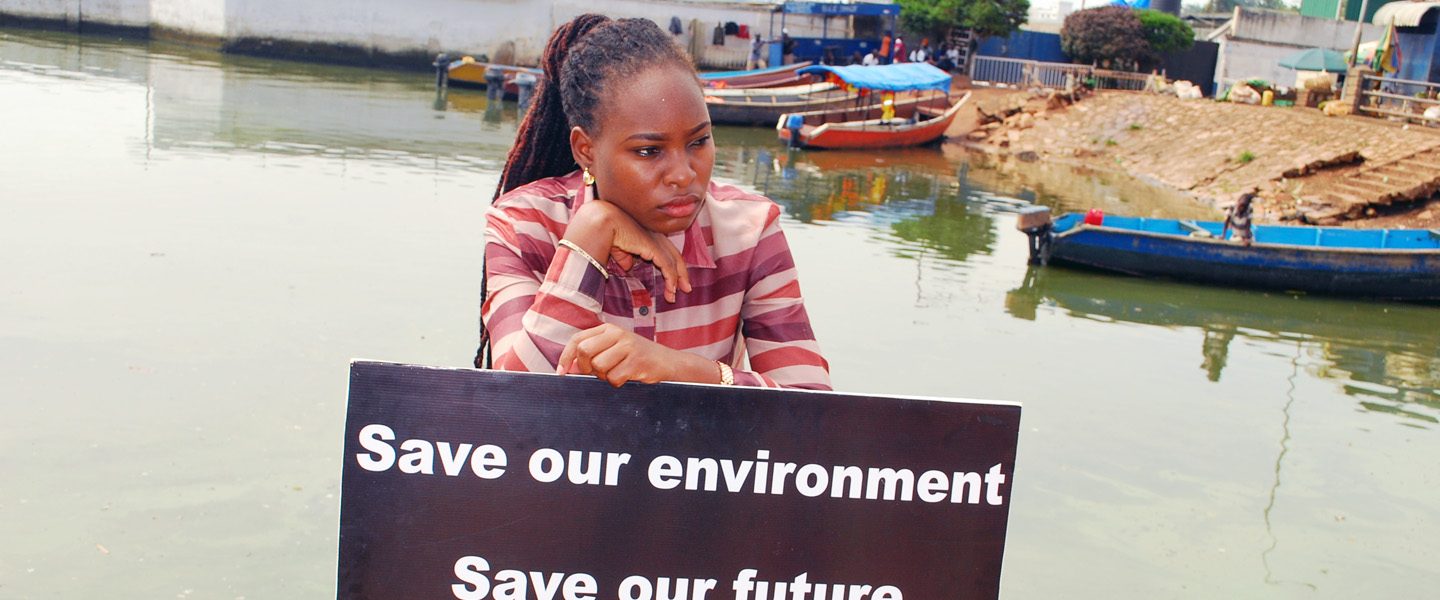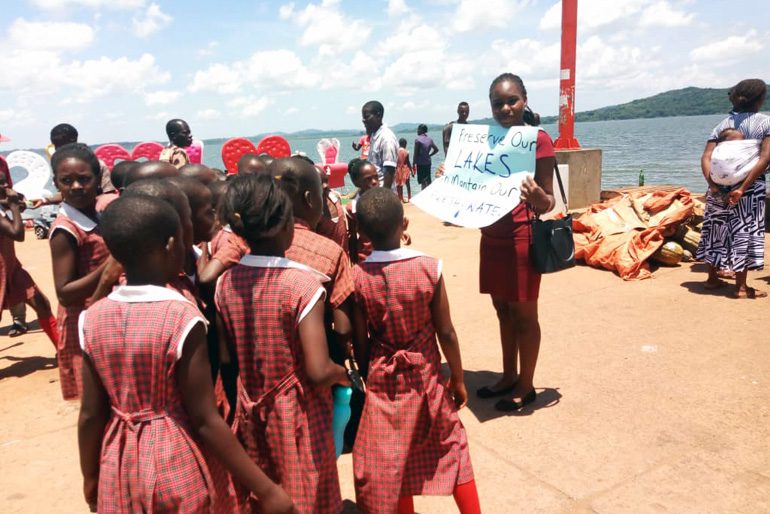Women and climate change: inspiring Ugandan activist Hilda Nakabuye


Gender inequality impacts daily life the world over, even when it comes to climate change. Women make up the majority of the world’s agricultural workers. As a result, natural disasters such as droughts, flood and storms impact women and girls hardest. These events increase maternal mortality and the child marriage rate and place a greater burden, particularly on rural women, for opens in a new windowfuel and water collection.
Hilda Flavia Nakabuye, a 22-year-old Ugandan student has seen first-hand the devastation climate change brings.
“I remember travelling to our village in Masaka district when I was little and all we could see on the way were swamps, forests and bushes. Everything was green and natural; we used to drive on empty stomachs because we knew my grandmother had prepared a lot of fruits and food for us,” she explains. “My grandfather owned more than 15 acres of land; of which 90 per cent was for agriculture because it was our source of income. We used to eat a lot because everything was in plenty and free.”
But the effects of climate change soon changed her once-plentiful district.
“As time went by, things started to change,” she continues. “Food became scarce and expensive, global warming caused unpredictable and sometimes dangerous weather conditions and disasters and heavy or no rainfall at all. Strong winds threw down our crops, very hot sunshine dried the crops and high temperatures dried the wells, making it hard for livestock farming. As conditions worsened, we had to sell off part of our land for survival.”
But it was not just their food supply and crop output that was affected. “There was a time when there was barely anything from the plantations. My dad did not have money for tuition so I reported two months late for school. Life changed totally.”

Hilda is trying to get people to understand that the time for a plan of action to fight climate change is now.
“Uganda’s past was glorious but the present is polluted. I did not know what precisely this was and what the causes were, until I attended a talk at my University organised by Green Campaign Africa in 2017. Listening to the causes and consequences of climate change and the speaker’s conclusion that very little was being done to tackle climate change broke my heart. I felt terrible, but this made me even more determined and responsible to be part of a solution.”
Inspired by the Swedish environmental activist, 16-year-old Greta Thunberg, Hilda instigated her own climate strikes. “On social media, I have met many like-minded people from different parts of the world with whom I share a lot of insights and information. This helps us find solutions to some of the problems we face.”
“Social media is a way of spreading information quickly and widely to different parts of the world,” she says. “This has helped me create wide climate awareness by sharing my work. It has inspired many people to take climate action and also join the Fridays For Future movement globally among other organisations.”
Hilda has also created striker diaries, an online platform to inspire more people about the movement, one that has enabled her to meet and speak to various organisations worldwide, such as Medicines San Frontieres (MSF), about climate change.

She also encourages fellow girls to join her in the fight to protect the planet. “I visit schools, communities and gatherings, empowering women and speaking to them about action,” adds Hilda who has also given interviews about her views as a woman in the fight against climate change.
Hilda feels that there are not enough women activists fighting for change and says, “We need every woman on board fighting for their lives. The climate crisis has no borders.”
Taking a stand on climate change is not without its critics, says Hilda. “I have [received] criticism from different people and organisations about my work; why I stand on the streets striking for over an hour; why I miss lectures. Some people criticise me when I discourage them about earning a living in a way that harms the environment such as cutting trees for timber, car washing near the lake shores or using agricultural practices that are not eco-friendly, among others.”
For gender equality and for the sake of the planet, the time to act is now.
“My advice to women interested in impacting change is that there is no other best time for you to start than now. So get up, speak up and fight for what you believe is right.”
Find out more about how gender equality is changing the workplace.
Women everywhere are pushing boundaries.
Meet the female entrepreneurs uplifting others by delivering Kenyan creativity to the world.
Ranking eighth within Asia Pacific in this year’s Mastercard Index of Women Entrepreneurs, Taiwan is becoming recognised for its support…
Our Chief Operating Officer for Singapore, Osman Ershad Faiz, shares what it means to support women at the workplace.
Female entrepreneurs in the US own over a third of businesses but receive just 2 per cent of all venture…
See how we’re tackling gender inequality.
Ship breakingProtecting wildlifeLiving longerGender equality